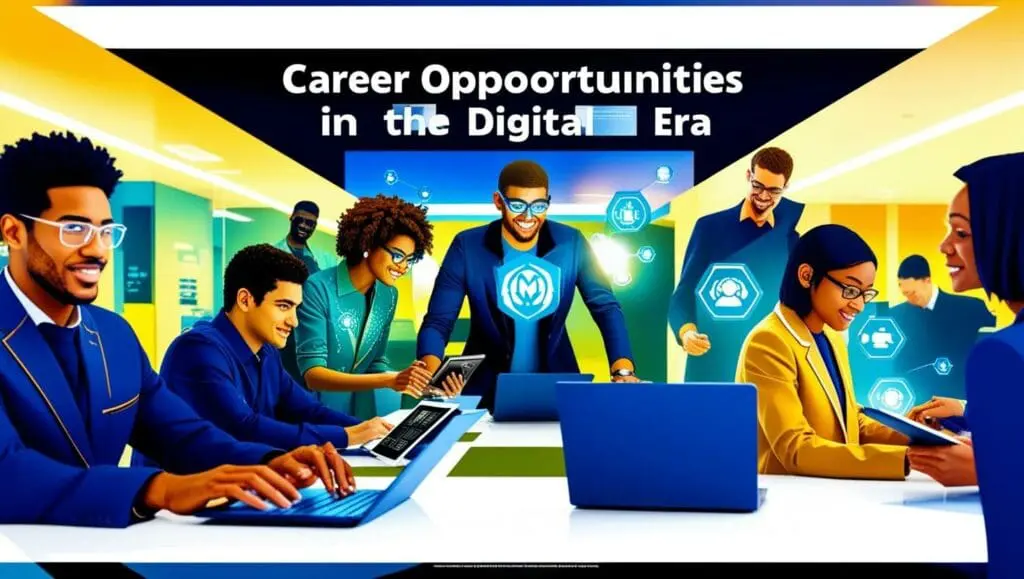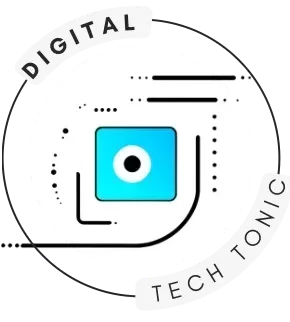
AI and automation are transforming our jobs, moving beyond mere buzzwords to become integral components of our work. Technologies like chatbots and advanced algorithms are handling repetitive tasks, allowing us to focus on more skill-based roles that emphasize creativity and problem-solving.
The rise of remote work and digital collaboration tools, such as Zoom and Slack, is enabling flexible hybrid work models that enhance adaptability and enjoyment in our professional lives. This shift was largely unimaginable just a few years ago, but has transformed how we interact and complete tasks.
Emerging technologies, including blockchain and augmented/virtual reality, are also set to revolutionize the workforce. Blockchain is redefining decentralized work systems, while augmented reality offers immersive training and collaboration experiences. Together, these advancements suggest a dynamic, flexible, and complex work environment filled with opportunities.
Career Opportunities Emerging in the Digital Era

The digital age isn’t just changing how we work—it’s opening up whole new avenues for what we can do. Think roles like AI Trainers, who equip machines with the know-how and nuances of human interaction. Or Data Privacy Officers, the guardians of our digital footprints. And let’s not forget XR Designers who are crafting immersive experiences in virtual and augmented reality. These are just a few examples of entirely new career paths made possible by tech innovations.
The gig economy is another game-changer in today’s job market. Platforms like Upwork and Fiverr have exploded, creating a shift towards project-based work rather than traditional nine-to-five jobs. This flexibility has unlocked the potential for anyone to turn their skills and passions into a full-time career. Whether you’re a seasoned graphic designer or someone with a knack for video editing, there’s a spot for you in this ever-growing landscape.
Green tech and sustainability careers are also gaining momentum. As the world becomes more eco-conscious, jobs in renewable energy and sustainable practices are blossoming. The push for cleaner, more efficient technologies is creating opportunities across all sectors. Whether you’re interested in designing wind turbines or developing smart cities, the sustainable tech field offers a promising and impactful career path.
The message here is clear: technology is not just a disruptor, but a creator. It breaks old barriers and introduces realms that were once unimaginable. By embracing these new opportunities, we can tailor our careers to be as adaptable and forward-thinking as the tech that shapes them.
Essential Skills for Navigating the Tech-Driven Landscape

In this tech-crazed world, getting ahead isn’t just about mastering the latest gadget or app. It’s about honing a blend of hard and soft skills that keep you relevant and ready for anything. Let’s break it down.
First up, the hard skills. Precision and know-how in fields like AI, machine learning, and data analysis can set you apart. Not to mention cloud computing is becoming a must-have skill in many industries. Even if you’re not a tech pro, having a basic grasp of coding and digital literacy goes a long way. It’s like knowing how to drive; you don’t need to be a car mechanic, but understand how it works.
Still, we can’t overlook the power of soft skills. Adaptability is crucial in these ever-changing times. Whether it’s switching roles or picking up new tasks, being flexible keeps you light on your feet. Creativity helps in tackling challenges that machines can’t solve. And when leading a remote team, emotional intelligence and clear communication are your best friends.
Continuous learning is the name of the game. We live in an age where knowledge is just a click away, thanks to platforms like Coursera and LinkedIn Learning. These give you access to endless courses and learning paths tailored to your interests and career goals. Bootcamps, too, can be a great way to dive deeply into specific skills quickly.
In the end, blending these skills can help you ride the waves of change like a pro. Remember, tech might be leading the charge, but it’s your skills that will set you on the right path in this dynamic job market.
Navigating Challenges and Ethical Landscape

Automation might boost efficiency, but it also stirs up fears about job displacement. Industries like manufacturing and retail are seeing the biggest hits, with machines gradually taking over roles traditionally held by humans. To tackle these changes, we need strategies for helping workers transition into new roles, primarily through upskilling and reskilling programs.
Privacy is another hot topic in today’s tech-driven workplaces. While tools for tracking productivity and ensuring security are commonplace, they raise serious questions about employee privacy. Striking the right balance means creating transparent policies that respect individual privacy while still achieving business goals.
Inclusivity in tech is a challenge that needs addressing. You’ll often hear how lacking diversity can stifle innovation and leave talent untapped. It’s essential to ensure everyone has a seat at the table, especially underrepresented groups. Increasing diversity in tech leadership and opportunities can lead to richer perspectives and, ultimately, better solutions.
In this mix of challenges and ethical considerations, being proactive is key. Whether it’s adopting responsible AI practices, being transparent about data usage, or committing to diversity, companies and individuals alike must engage with these issues thoughtfully. By focusing on fair and ethical work conditions, we can build a tech-driven future that’s not only advanced but equitable too.
Preparing for the Future: Tailored Steps for Different Audiences

Whether you’re just starting out or a seasoned pro, preparing for a tech-driven world calls for a game plan tailored to where you are right now. So, let’s dish out some practical advice.
For those just dipping their toes into the tech pool, start small. Pick up foundational skills in coding or get a handle on AI basics. Tons of free resources, from YouTube tutorials to online courses, are at your fingertips to help build confidence and know-how. Entry-level certifications can give your resume a nice boost too.
If you’re already established in your career, pivoting towards tech or tech-adjacent roles might be on your radar. This means identifying skills that can translate well into tech fields. Think about marketing for tech companies or product management in software developments. Don’t forget the power of personal branding! An active and engaging LinkedIn profile can showcase your skills and make new connections irresistible to potential employers.
Organizations aren’t left out in this prep talk. Building a thriving tech-friendly environment means focusing on continuous training and fostering a culture of innovation. Encourage teams to explore new ideas and support continuous learning, ensuring that everyone stays ahead of industry trends. Investing in employee development is a surefire way to keep your company resilient amid rapid changes.
Ultimately, preparation is all about staying curious and open to new possibilities. Whether it’s learning a new coding language, networking like a champ, or fostering a forward-thinking workplace, these efforts can keep you agile and ready for the future work landscape.
Conclusion and Call to Action

In this whirlwind of tech change, it’s crucial to remember that adapting is a continuous journey, not just a one-time effort. Embrace these shifts as opportunities to grow your skill set and expand into new career paths. Whether it’s the skills you’re honing or the innovative roles you’re eyeing, staying proactive is key.
Think about what you’ve absorbed—be it new career routes, pressing ethical challenges, or essential skill learnings. Take a moment, assess your position in this evolving landscape, and make a plan. Dive into that coding class you’ve been considering, start a project that sparks passion, or begin networking within tech communities that align with your goals.
Now’s the time for action. Don’t wait for change to happen—lead the charge in your own career! Be curious, be bold, and most importantly, be ready to learn continuously.
Oh, and don’t be a stranger! There’s more to come. Stay tuned for our upcoming guide on mastering AI tools for the workplace, aimed to give you the cutting-edge advantage in your career.
Building Resilience in a Shifting Work World

Resilience in today’s rapidly evolving work environment is more crucial than ever. It’s about adaptability, continuous learning, and being open to change. The work landscape might be shifting under our feet, thanks to technological advances, but with a flexible mindset, this change doesn’t have to be a hurdle.
Start by strengthening your ability to adapt. Engage in various tasks and projects outside your comfort zone. This not only enhances your skill set but also makes you more versatile. Embrace change as an opportunity, not an obstacle. Building resilience is about seeing each challenge as a stepping stone rather than a stumbling block.
Networking is another pillar of resilience. Connecting with others in your field can open up new opportunities and provide support in uncertain times. Attend webinars, participate in workshops, and join online forums to exchange ideas and insights. By staying active and engaged within your professional community, you’re building a safety net of peers who can offer guidance and support.
Leverage setbacks as teachable moments. Every professional journey includes a few bumps in the road. How you respond to those bumps defines your path forward. Analyze what went wrong, learn from those experiences, and apply that knowledge to future endeavors.
As we continue navigating this transformative era of work, staying resilient isn’t just beneficial—it’s essential. Equip yourself with the right skills, foster a strong support network, and always remain open to the possibilities that technology brings. This mindset will not only help you survive but thrive in the future world of work.


